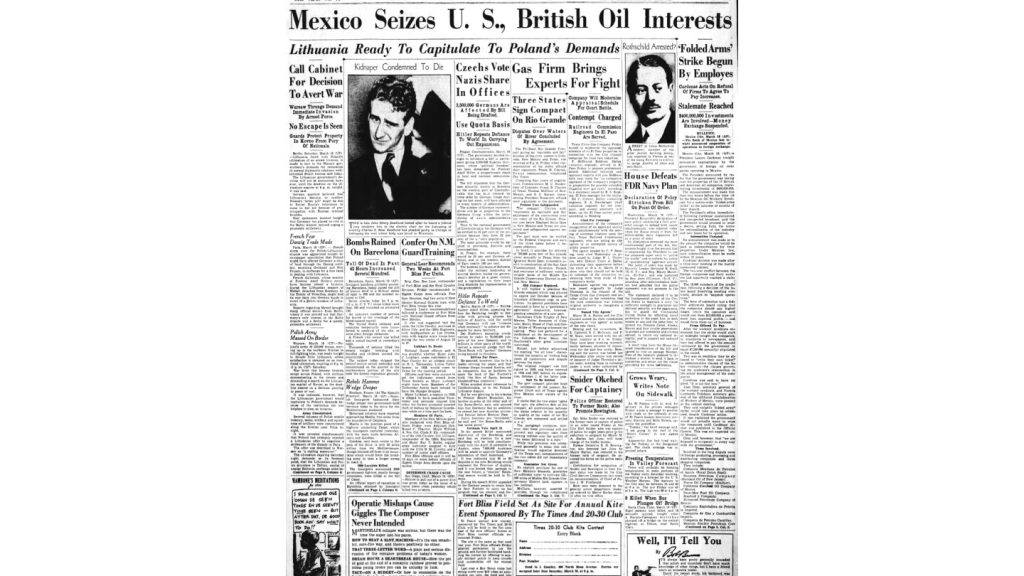Mexico made a historical move by seizing control of its oil sector from U.S. companies, a decision that is now taught in schools and celebrated annually as a patriotic victory. The woman leading the race to replace President Andrés Manuel López Obrador is Claudia Sheinbaum, an environmental engineer who played a role in the 2007 Nobel Prize-winning Intergovernmental Panel on Climate Change report. Sheinbaum has been a loyal follower of López Obrador and was part of the fight against energy reform in 2008. This decision marks a significant moment in Mexico’s history and highlights the country’s commitment to its natural resources.
The expropriation of foreign oil companies in Mexico was announced by President Lazaro Cardenas, who declared that the government would be taking over the properties of 17 British and American oil companies, with investments totaling $400,000,000. This move came after months of labor disputes, with the Mexican Oil Workers’ Syndicate planning a “folded arms strike” as a result of the conflict between the companies and their workers. The lack of announcement regarding indemnification for the companies raised questions about the terms of the nationalization of the industry and the new bases for its operation.
Cardenas’ decision to seize control of the oil sector came after a three-hour meeting of the cabinet, following a two-year conflict between the foreign companies and their workers. The syndicate, made up of 18,000 members, decided to suspend operations after a federal arbitration board ruling that the companies should pay higher wages. The operators argued that the increased costs would exceed their expected profits, leading to the potential closure of their businesses. Despite offers from the companies to pay the stipulated amount, Cardenas made it clear that it was too late to negotiate, solidifying the government’s decision to nationalize the industry.
The nationalization of the oil sector in Mexico brought about significant changes in the country’s economy and political landscape. The move led to the establishment of new regulations and guidelines for the operation of the industry, with the government taking on a more prominent role in its management. The decision also marked a shift in the relationship between Mexico and foreign oil companies, setting a precedent for future interactions between the two parties. The aftermath of this historic event continues to be felt in Mexico’s oil sector and serves as a reminder of the country’s commitment to safeguarding its natural resources.
The expropriation of foreign oil companies in Mexico remains a contentious topic, with debates surrounding the impact of the decision on the country’s economy and international relations. While some view the move as a necessary step to protect Mexico’s sovereignty and resources, others criticize it for its potential negative effects on foreign investment and economic growth. The nationalization of the oil sector underlines the tensions between national interests and international partnerships, highlighting the complexities of balancing sovereignty with global economic integration. The legacy of this historic event continues to shape Mexico’s oil industry and serves as a reminder of the country’s determination to assert control over its most precious natural resource.
As Mexico moves forward with its plans to replace President Andrés Manuel López Obrador, the significance of the nationalization of the oil sector remains a key point of discussion. Claudia Sheinbaum, the leading candidate in the upcoming election, represents a new generation of leadership that is committed to environmental protection and sustainable development. Her connection to López Obrador and involvement in the fight against energy reform signal a continuation of the government’s stance on protecting Mexico’s natural resources. The upcoming election will not only determine the country’s future leadership but also the direction of its oil industry, with implications for both domestic and international stakeholders.














